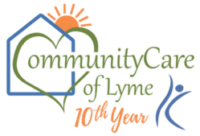Sexual Health as We Age
A Collaboration with Eliza Polli, Psy.D.
the Aging in Our Community Team and the CCL Mental Health Team
In recent discussions with community members, the topic of aging and sexuality has come up. At the same time the Generations Journal: Winter 2022/2023 from the American Society on Aging has focused on this same topic. The synchronicity of these makes it clear it’s time to look further at this topic, together.
Through these articles the trend is clear that “social cuing related to older adult sexuality tends to be negative” (Jen, Feb 8 2023) and this in turn can lead older adults to no longer see themselves as sexual beings.
You may be wondering why this is an important topic for us, as a community to consider. In supporting Aging in Our Community, consider this statement from Stephen Duclos’, LFMT, CST, article, Death, Sex, and Older Partners: Moving To Pleasure (Feb, 4 2023) “emergent pleasure and sexual health late in life causes dramatic decreases in physical pain, visits to the doctor, and other physiological measures” (Syme, 2014 as cited in Duclos). Duclos later states, “Moving forward developmentally, touching becomes more important than words, although both are important.” (Duclos, Feb. 4 2023).
We can beat back the despair of aging, of death approaching, of physical limitations, by touching each other on a regular basis, and in a variety of ways. Our infirmities matter less if someone is continuously interested in using our bodies and theirs for the purpose of pleasure. Suffering is a part of life, and is not assuaged by sexualities, or anything else. At the same time, rehabilitating our sexual health late in life can be curious, and eventful, and surprising enough. Maybe it can be enough to distract us for a few moments. (Duclos, Feb. 4, 2023)
The journal also introduces articles that explore the stumbling points faced for older adults’ sexuality when in long-term care. When we consider the previous statement that “touching becomes more important than words” (Duclos, Feb, 4, 2023) and that “sexual health late in life causes dramatic decreases in physical pain…” (Syme, 2014 as cited in Duclos). Based on the article, Our Guest Editor: Progressive Voice on Sexuality as We Age and in Long-Term Care by Alison Biggar, (Feb 15, 2023) it seems that this topic is an important one to consider when looking at potential long-term care options for friends, family and loved ones where “sleepovers” are often not allowed, and patients frequently share a room with at least one other person.
Journal articles in this issue range on topics from Sarah Jen’s Beyond the Binary: Bisexual Sexualities in Later Life (Feb, 8 2023) to Ellen Barnard’s When Clinicians Have No Time, or Training, Sex Shops May Be the Answer (Feb, 6 2023). Through reviewing these articles, it seems the question then becomes, so what can we do to help?
We can:
- Question ageist views on sexuality—sex and intimacy are still very important as we age.
- Engage in conversations about sex and intimacy with your partner(s).
- Connect loved ones with supports when these conversations become difficult.
- Normalize the human need for physical connection that remains, even as we age.
Works Cited:
“Aging and Human Sexuality Resource Guide.” American Psychological Association, American Psychological Association, https://www.apa.org/pi/aging/resources/guides/sexuality.
Barnard, Ellen. “Sex Shops May Be Answer to Clinicians with No Time.” ASA Generations, 15 Feb. 2023, https://generations.asaging.org/sex-shops-may-be-answer-clinicians-no-time.
Biggar, Alison. “Progressive Voice on Sexuality as We Age & in LTC.” ASA Generations, 15 Feb. 2023, https://generations.asaging.org/progressive-voice-sexuality-we-age-ltc.
Duclos, Stephen. “Death, Sex, and Older Partners: Moving to Pleasure.” ASA Generations, 15 Feb. 2023, https://generations.asaging.org/death-sex-and-older-partners-moving-pleasure.
Jen, Sarah. “Bisexual Sexualities in Later Life.” ASA Generations, 15 Feb. 2023, https://generations.asaging.org/bisexual-sexualities-later-life.


If you have a wellness themed topic you would like to share or learn more about, and/or blog/vlog about as an expert in a health/wellness related field, please reach out to shelby@cclyme.org.
Shelby Wood
Manager of Volunteer Participation
CommunityCare of Lyme
Shelby@cclyme.org
802-468-7776







Leave A Comment